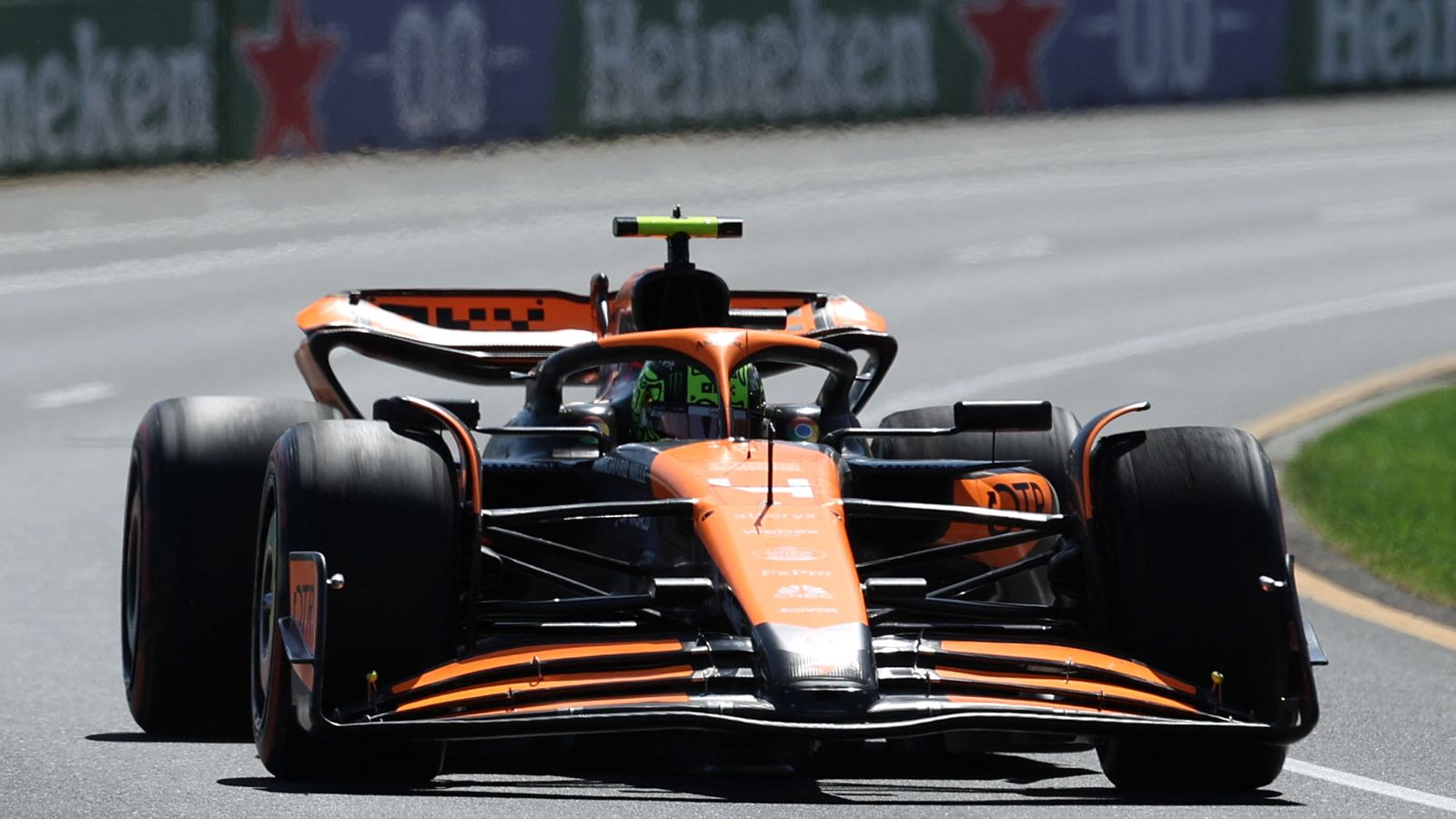Bahrain state fund takes full ownership of supercar-maker McLaren

Bahrain’s sovereign wealth fund has completed a deal to take full ownership of McLaren Group, one of the most revered names in British manufacturing, after years of negotiations to put the company on a stable long-term footing.
Sky News understands that McLaren will announce later on Friday that the recapitalisation of the supercar manufacturer and Formula One team shareholder has been concluded.
The deal will pave the way for McLaren to pursue a technology partnership with a global automotive giant that could also involve Mumtalakat offloading a minority stake in the Woking-based company.
In a statement issued to Sky News, Paul Walsh, McLaren’s executive chairman, said the deal would strengthen the company’s governance and ownership structure.
“This will further enable us to focus on delivering our long-term business plan, including investment in new products and technologies, whilst continuing to explore potential technical partnerships with industry partners,” Mr Walsh, the former Diageo chief executive, said.
Mumtalakat said the completion of the transaction “crystallizes the next phase of the company’s trajectory of growing its leadership position in the luxury super car and motorsports industries”.
“This reorganisation and new simplified structure positions McLaren for success and opens up strategic avenues, which include exploring new partnerships to enhance the company’s growth over the coming years.”
McLaren, whose road car models include the Artura Spider, P1 and Senna, announced on Friday morning that Zak Brown, the boss of its racing division, had signed a new long-term contract.
As part of the recapitalisation deal, McLaren’s remaining minority shareholders have agreed to convert their equity into warrant-like instruments.
Advertisement
The new contracts will have the economic rights to benefit from a future ‘liquidity event’ such as an initial public offering or sale of McLaren, but would not be classed as shares.
McLaren Racing, the division which directly houses the F1 and other racing operations, has its own external shareholders following a deal struck during the pandemic.
The Woking-based company’s convoluted capital structure has acted as a deterrent to global automotive groups’ ability to structure a long-term partnership with it in recent years.
Simplifying that structure is likely to pave the way for a technology partnership with an automotive original equipment manufacturer (OEM) in the coming years as McLaren transitions towards becoming a hybrid and electric vehicle company.
Read more from business:
New Brexit border post could be demolished
Retail sales flatline as wet weather dampens demand
US justice department sues Apple
Bankers have talked up the prospect of a McLaren public listing for years, but its repeated need to tap its private shareholders for funding, and the supply chain challenges which have hindered its recovery, mean that an IPO is still likely to be several years away.
During the COVID-19 pandemic, the company was forced into a far-reaching restructuring that saw hundreds of jobs axed and substantial sums raised in equity and debt to repair its balance sheet.
McLaren has also undertaken a series of corporate transactions since the start of the pandemic, when it sought a government loan – a request which was rebuffed by ministers.
Mr Walsh has overseen a £170m sale-and-leaseback of its spectacular Surrey headquarters.
In 2021, it also sold McLaren Applied Technologies, which generates revenue from sales to corporate customers.
Founded in 1963 by Bruce McLaren, the group’s name is among the most famous in British motorsport.
During half a century of competing in F1, it has won the constructors’ championship eight times, while its drivers have included the likes of Mika Hakkinen, Lewis Hamilton, Alain Prost and Ayrton Senna.
In total, the team has won 180 Grands Prix, three Indianapolis 500s and the Le Mans 24 Hours on its debut.
The company saw its separate divisions reunited following the departure in 2017 of Ron Dennis, the veteran McLaren boss who had steered its F1 team through the most successful period in its history.
Mr Dennis offloaded his stake in a £275m deal following a bitter dispute with fellow shareholders.